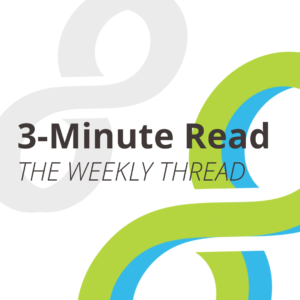Template Agreements and the Challenges of One-Size-Fits-All
 March 6, 2023 — It’s often said that if you’ve seen one sponsored research agreement, you’ve seen…one sponsored research agreement. But the argument is frequently made for template agreements as helpful tools for collaborative research, offering partners a jumping-off point for negotiation. Useful template agreements promise to save time and resources by setting out basic terms up front.
March 6, 2023 — It’s often said that if you’ve seen one sponsored research agreement, you’ve seen…one sponsored research agreement. But the argument is frequently made for template agreements as helpful tools for collaborative research, offering partners a jumping-off point for negotiation. Useful template agreements promise to save time and resources by setting out basic terms up front.
To streamline what is often the laborious journey to a sponsored research agreement, the UK government published the Lambert Toolkit in 2005. The current version comprises 11 different research collaboration agreements, featuring models for one-to-one collaboration and for consortia. It also includes a decision guide so users can choose which model best suits the purpose at hand; letters of intent and variations of both types of agreements; and guidance notes to aid in the use and understanding of the agreements themselves.
Another example is the Carolina Express License Agreement (CELA), a template used by the University of North Carolina at Chapel Hill to support collaborations with UNC startup companies. CELA aims to allow the startup company to spend more time and effort on company matters like financing and management rather than negotiation with UNC. Read more about CELA here.
A nice idea, but rarely used
Eight years after its implementation, the UK’s Intellectual Property Office released a report about usage of the Lambert Toolkit. While over 80% of the research community and over 50% of companies were familiar with the resource, only 3% are using it without modification. Instead, most are using pieces of the toolkit for different activities, or using their own institution’s model agreements instead. Overall, the report found that less than 15% of collaborative research between industry and academia in the UK was based on Lambert-like agreements.
In 2020, seven university tech transfer offices and venture capital firms convened to produce guidelines that address challenges around life science agreements, resulting in a term sheet template for therapeutics. UIDP’s good friend Orin Herskowitz (of Columbia University and Columbia Technology Ventures) helped lead this effort and was recently recognized by AUTM with the Bayh-Dole Award for promoting IP activities on behalf of the university and non-profit community. Herskowitz says the plan for the document is to publish an updated version every three months or so.
What about other types of agreements? Developers of the term sheet template suggest it may have utility outside these areas because it establishes a baseline rather than specifics of every point in a license agreement, a common theme underpinning most template agreements. Next, Herskowitz says, the developers will try and tackle another type of IP around climate research. Learn more about that term sheet template here.
Template pitfalls
These types of agreements are often designed to be a “one-size-fits-all” solution that may not consider the specific needs and circumstances of the parties involved, leading to a lack of flexibility that could result in terms unsuitable or fair for all parties. Specific templates work for some situations, but not others. Model agreements may also favor one party over another, especially if one party has greater bargaining power or resources. This could lead to an unfair distribution of rights and benefits and may discourage parties from entering into agreements in the first place.
To overcome the potential challenges of using template agreements, parties may need to make significant changes to the agreement—modifications that can be time-consuming and costly.
We all agree that making collaborative R&D easier and faster is important to spur innovation and solve the world’s most pressing challenges, but are template agreements the best avenue? We want to hear from you. Have you used template agreements? Do they improve your collaboration processes? Let us know on our LinkedIn profile.


